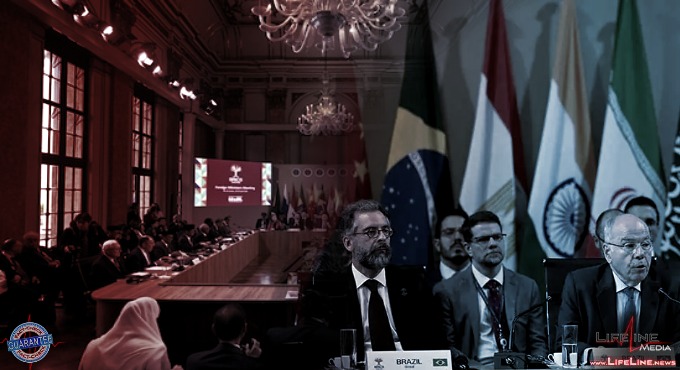How Brazil’s Bold Move Could Shake Up Global Trade and BRICS Relations

FACT-CHECK GUARANTEE
Political Tilt
& Emotional Tone
The article presents a balanced view on Brazil’s economic nationalism and protectionism without favoring either left or right political perspectives.
Generated using artificial intelligence.
The tone is neutral, providing an informative and measured discussion of the potential risks and benefits without emotional language.
Generated using artificial intelligence.
Updated:
Read
The timing is strategic.
This is huge:
Brazil is set to host the high-profile BRICS summit in July 2025, welcoming leaders from China, India, Russia, and South Africa. President Luiz Inácio Lula da Silva has openly stated his desire to use the summit to elevate Brazil’s influence on the global economic stage.
Lula envisions a world where emerging economies have a greater say in writing the rules and rely less on Western-led institutions like the International Monetary Fund and World Trade Organization. However, this ambition carries significant risks.
The IMF has warned that rising trade barriers — whether in Brazil or elsewhere — are casting a shadow over global growth prospects.
Increased uncertainty is making it harder for companies to plan investments or hire new workers. Countries deeply involved in international manufacturing networks, particularly in Latin America and Asia, could feel the impact most acutely.
Within Brazil, the government argues that its policies are necessary to defend against cheap imports that threaten domestic jobs.
Critics, however, contend that protectionism rarely delivers as promised. While some factories may enjoy a short-term boost, history shows that higher tariffs often backfire by raising prices for consumers, provoking retaliation from other countries, and stifling innovation.
The Organization for Economic Cooperation and Development (OECD) has also warned that persistent trade uncertainty could keep inflation stubbornly high worldwide. For households already struggling with rising food and energy costs, another round of price increases would be difficult to bear.
Brazil’s shift is part of a broader global trend toward economic nationalism. China has imposed technology restrictions, Europe is moving to protect key industries, and the United States — under both Trump and Biden — has embraced tariffs as a policy tool.
For Brazil, the stakes are high.
The country seeks greater influence among developing nations dissatisfied with what they see as an outdated global order. Yet if Brazil’s protectionist approach triggers a trade war or even increased friction, it could undermine both its domestic economy and its international aspirations.
As July 2025 approaches and world leaders prepare to gather in Rio de Janeiro for the BRICS summit, attention will focus on Brazil’s next steps.
Will it double down on tariffs or seek compromise? Decisions made now in Brasília will have far-reaching consequences — reshaping supply chains, affecting prices from São Paulo to Shanghai to Chicago, and potentially redefining global trade rules for years to come.

Join the discussion!
Be the FIRST to comment on ‘Brazils SHOCKING Tariff SURGE: Will Trade WAR Ruin Brics Unity?’